Student Blog: A Theatre Major Takes On Opera
A spontaneous opportunity to participate in my university's opera production turned into one of the most exciting and educational performance experiences I've ever had.
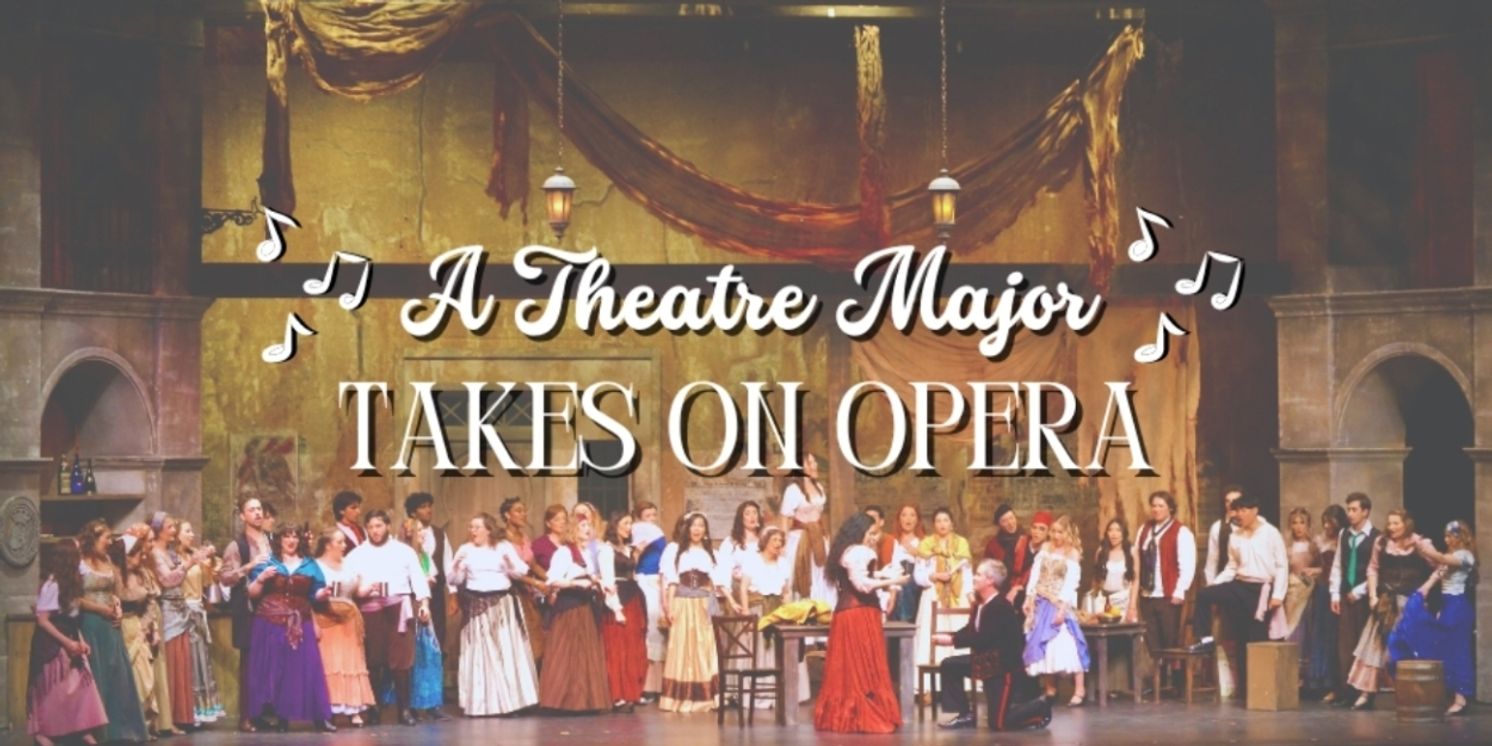
Fri, Jan 13, 3:26 PM - Call me right away as soon as class is done.
When I got this text from my mom in the middle of lecture, I began to worry that something was terribly wrong. Her tone isn’t typically this urgent in her text messages— surely she had some dire news about a death, injury, accident, or something else horrible and unexpected. When I finally called her on the way back from class, I was met with a question that was very unexpected, but certainly not horrible in the least: “Do you want to be in an opera?”
My mom is a music educator. Long story short, she was at a statewide college recruiting conference representing the private university she teaches at, happened to run into the person representing MY university at the event, struck up conversation with him, found out he was the director of the opera program, mentioned how her daughter (me) is a theatre major who loves to sing, and next thing you know, he asks if I might be interested in filling an open mezzo-soprano spot in the chorus for the university’s production of Carmen. What an incredible opportunity! To be a part of a professional-scale production of arguably the most iconic, well-loved operas of all time without even being required to audition? The whole situation seemed too good to be true; how could I turn it down? Despite knowing I would have to rearrange my work schedule to accommodate rehearsal dates, I hurriedly got off the phone with my mom, sent an email to the director, and successfully secured a spot in the course— just one hour before drop/add ended. Talk about a last minute opportunity!
Being in the ensemble of Carmen was probably one of the most fulfilling experiences I’ve had in my life as a theatre artist thus far. For me personally, it was very much a full circle moment. Growing up as the daughter of orchestral musicians, my childhood and adolescence were filled with many trips to the opera as an audience member; never did I ever think I would have the chance to perform in an opera one day, let alone Carmen. Even if you consider yourself unfamiliar with opera, I guarantee that you have heard multiple pieces of music from this show in your lifetime, from movies and TV shows to commercials and internet memes— it’s simply that iconic. (Don’t believe me? I’m sure this or this might sound familiar to you). The music of Carmen has always seemed to resurface in my life growing up, from learning about it in elementary school music class, hearing my parents perform the orchestral suite on multiple occasions, studying it more in my high school vocal arts class, and getting to see it performed professionally right before all theatres went dark in 2020. All this to say, the privilege of actually getting to be in the show was very special to me.
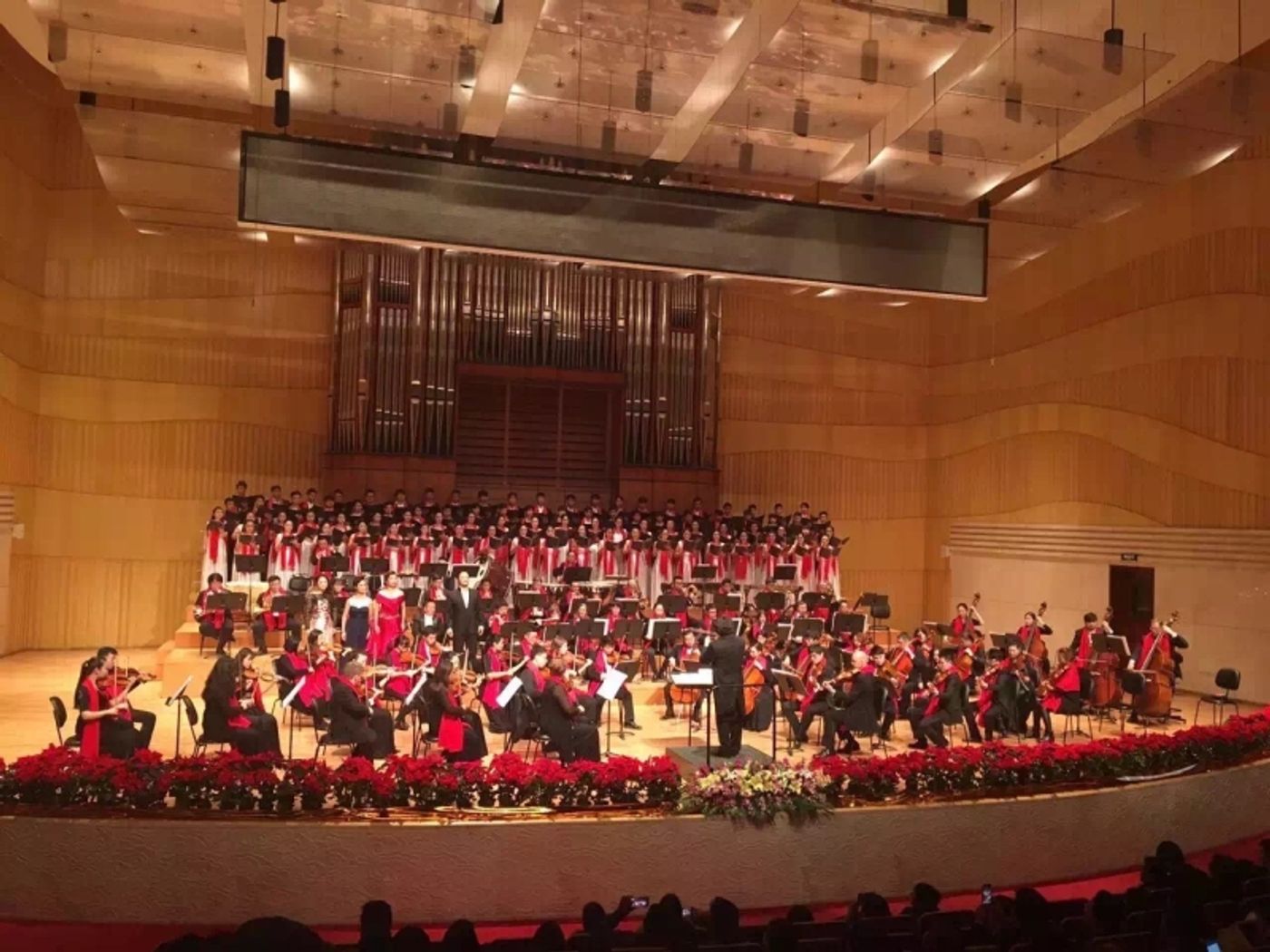
Sentimentality aside, being in the opera was also such a rich experience in the way it expanded my horizons as a performing artist. From my perspective, it seems that many theatre people (especially younger ones) view opera as this lofty, foreign thing that exists in its own universe far removed from the theatre world, even though the two artforms are very much intertwined. Outside of The Phantom of the Opera, I would say that actual opera isn’t something the average theatre kid gives much thought to. But is opera not simply an older, more elevated variation of musical theatre? Of course, in opera, everything is delivered on a grander scale; the giant sets, the sweeping lights, the vast stage, the huge ensemble, the one hundred piece orchestra— even the sheer drama of the plot is turned up a notch. But the same could be said of an 80’s megamusical in my opinion. Thinking about all of this made me appreciate opera more, while also letting me feel like less of an outsider as a theatre major.
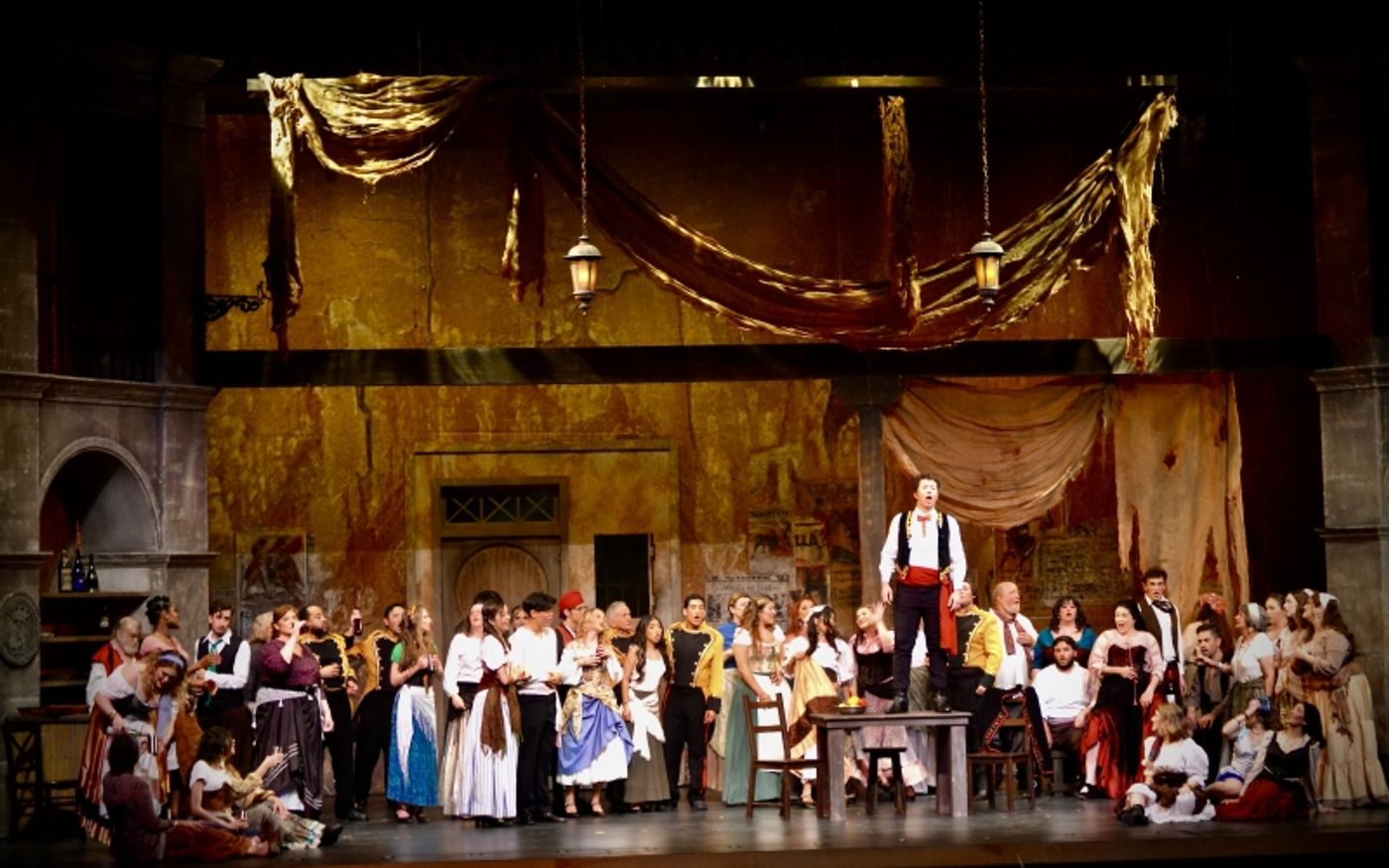
All that being said, musical theatre and opera are separate entities. After all, this production was put on by the university’s School of Music, not the School of Theatre and Dance. What this meant for me was that I was one of the lone theatre majors in an ensemble comprised largely of music majors. To be completely honest, I remember feeling like I was in over my head after the first chorus rehearsal. It felt like almost everyone around me was some crazy talented vocal performance major who could sing in four different languages, hit notes in the sixth octave, and had plans to sing at The Met one day; meanwhile, I was just this random theatre major (not even musical theatre, mind you) who had a few years of choir experience, barebones sight reading skills, and was just happy to be there. But if I’d done musical theatre before, have a good ear, know how to work in an ensemble, and have the diligence and determination to learn new things, who was to say I couldn’t fake my way through an opera? The technical skills would get developed along the way. The more I reminded myself of this, the more confident I felt that I had what it took to be in the room with everyone. Despite being a bit out of element, my background in theatre definitely provided me with my own unique strengths to bring to the show. Simply having the ability to assess the show from a storytelling standpoint and make informed, improvisational choices proved to be very valuable. In a production with such a giant ensemble, intentional action must be happening everywhere the audience looks. In scenes and moments where the chorus wasn’t given as much specific direction as to what they should be doing, having that intuition allowed me to make my own acting choices while playing off of others. I may not have perfect French diction or the widest vocal range, but I know how to tell a story. What’s the point of pronouncing the French perfectly if you don’t know the intentions behind what you are singing? Your performance won’t be believable. Having a foundation in theatre allowed me to pick up on these types of performance details that might have been neglected. All in all, everyone in the chorus brought their own training and skills to the table that balanced each other out and created a well-rounded, multi-talented ensemble, theatre majors included.
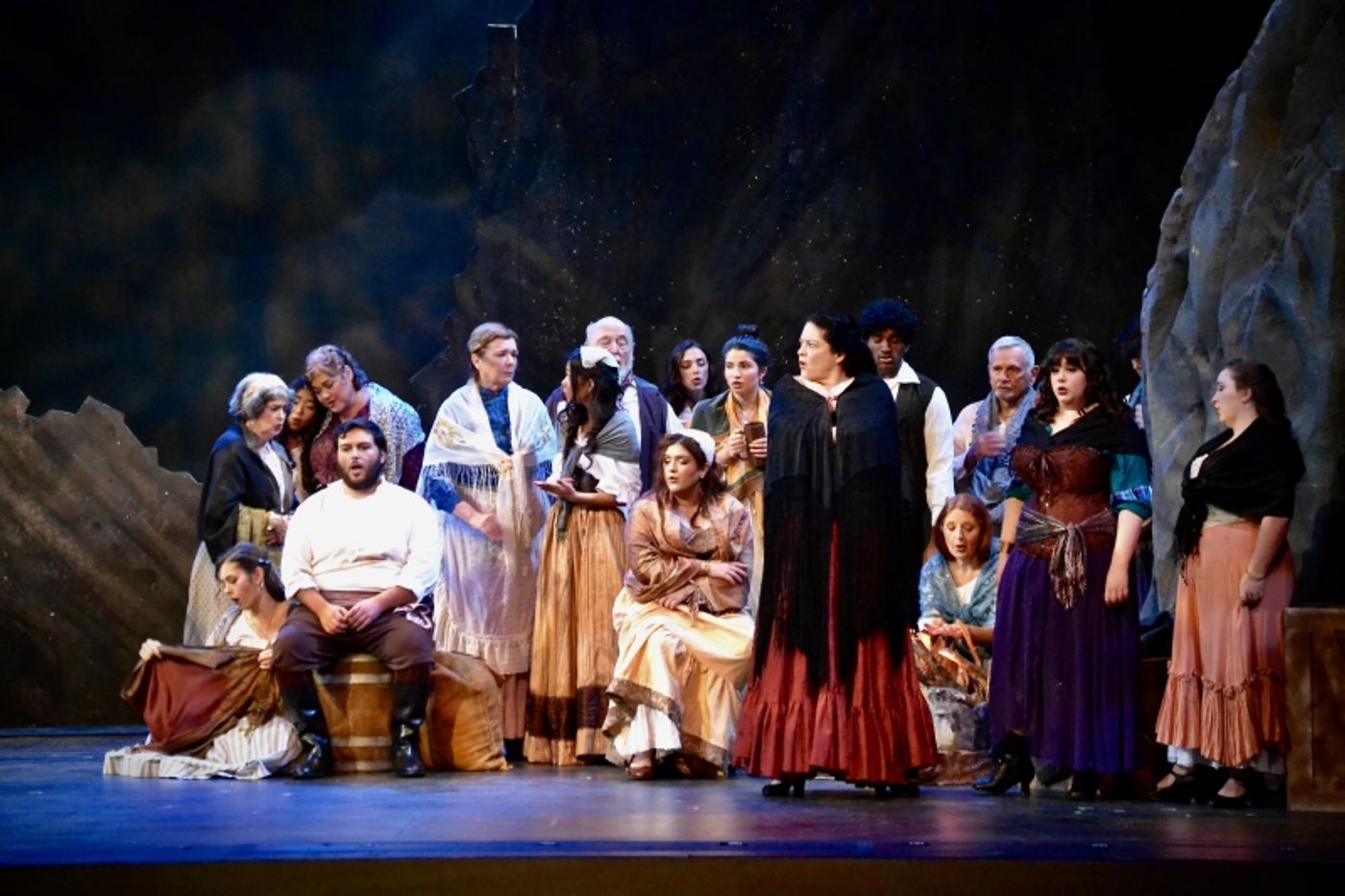
As hinted at previously, singing completely in a foreign language was one of the biggest new challenges I tackled while in the opera. I’ve sung in Spanish and German before back in my choir days, but singing in French is a different beast; you can’t fake your way through it. Nothing is pronounced the way it is spelled, and even then, nothing is sung the way it might be spoken. So, on top of learning very challenging music, I also had to figure out how to properly pronounce and memorize the general meaning of words in an even more challenging language. Thankfully, many of the vocal performance majors were trained in French diction and graciously helped out those who were less experienced. I didn’t think I would be able to do it, but after much studying and practice, I committed all of my French to memory. Was my final pronunciation perfect? Likely not. Nevertheless, I sang it out proudly. Overall, this challenge deepened my understanding of and appreciation for the work that professional opera singers (and all performers in foreign language roles) must undergo when preparing for a show, and definitely taught me not to take English language shows for granted!
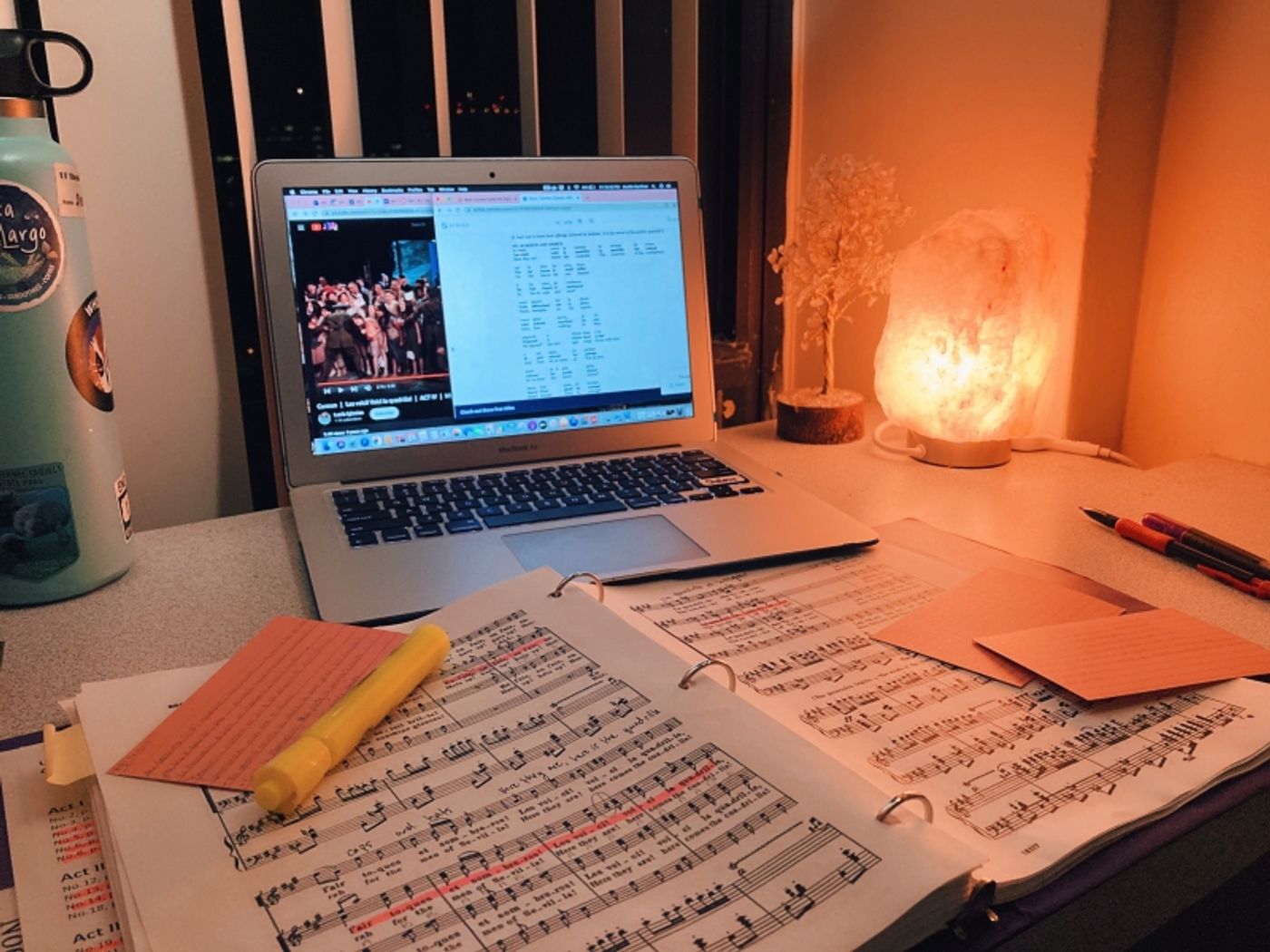
Another exciting new challenge was working with a live orchestra and learning to rely on the conductor. Every musical theatre show I’ve ever been in has only used pre-recorded tracks for accompaniment, so the opportunity to perform with a full orchestra in all its glory was extremely thrilling for me. Our sitzprobe, the first rehearsal with the singers and orchestra together, felt magical; sitting directly behind the orchestra, the music just envelops you, and you could feel the buzz in the air from how excited everyone was to be there making art together. Working with the orchestra while on stage though was a bit less relaxing. With the chorus and orchestra combined, there were times where the conductor was directing nearly 150 people at once. If people were not watching her and got ahead of the tempo, chaos could ensue. To add to the pressure, there was no music director monitor mounted at the back of the hall, so it was very difficult for people onstage to watch the conductor if they couldn’t see directly into the pit, especially when the blocking called for quick movement, like fighting. However, I was usually positioned near the edge of the stage, which meant I could see into the pit better than most people. Learning the importance of watching the conductor, watching your fellow performers on stage, and actively working to ensure that the ensemble performs as a coherent musical unit taught me valuable lessons about the art of collaboration and teamwork that can be applied even outside of the theatre. Despite its more stressful nature, working with a live orchestra was a great educational experience that gave me a sneak peek into the world of professional performing arts.
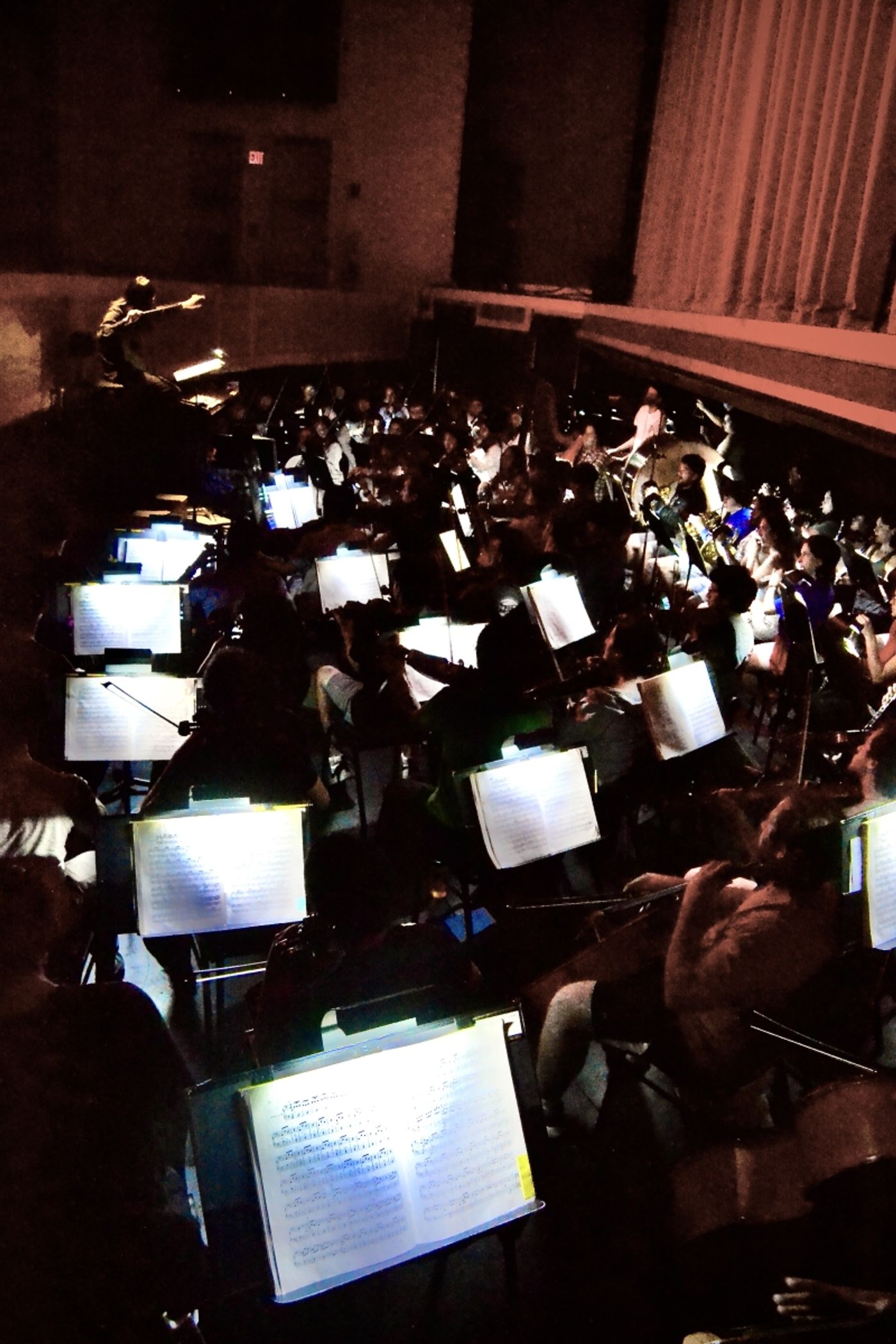
While the chorus was largely comprised of students, many of the opera’s principal roles were played by faculty and guest artists. Getting to work alongside these industry professionals as a mere college student was such an amazing privilege. Kirstin Chavez, the guest artist who played Carmen herself, has performed at the Met and played the role of Carmen at various opera companies across the country and across the world— she joined us during the last two weeks of rehearsal with her role entirely memorized, that’s how many times she’s done it! Getting to be in the room with her during rehearsals and interact with her on stage during the show was such a masterclass in performance; her stage presence was captivating and the energy she brought to the show was so powerful, elevating the performance of everyone around her. Her improvisational skills in the rehearsal room were exciting and brought the show to another level. And on top of her incredible skill, she was just a genuinely kind person who was happy to be there with us. I felt so lucky to be in a show with her.
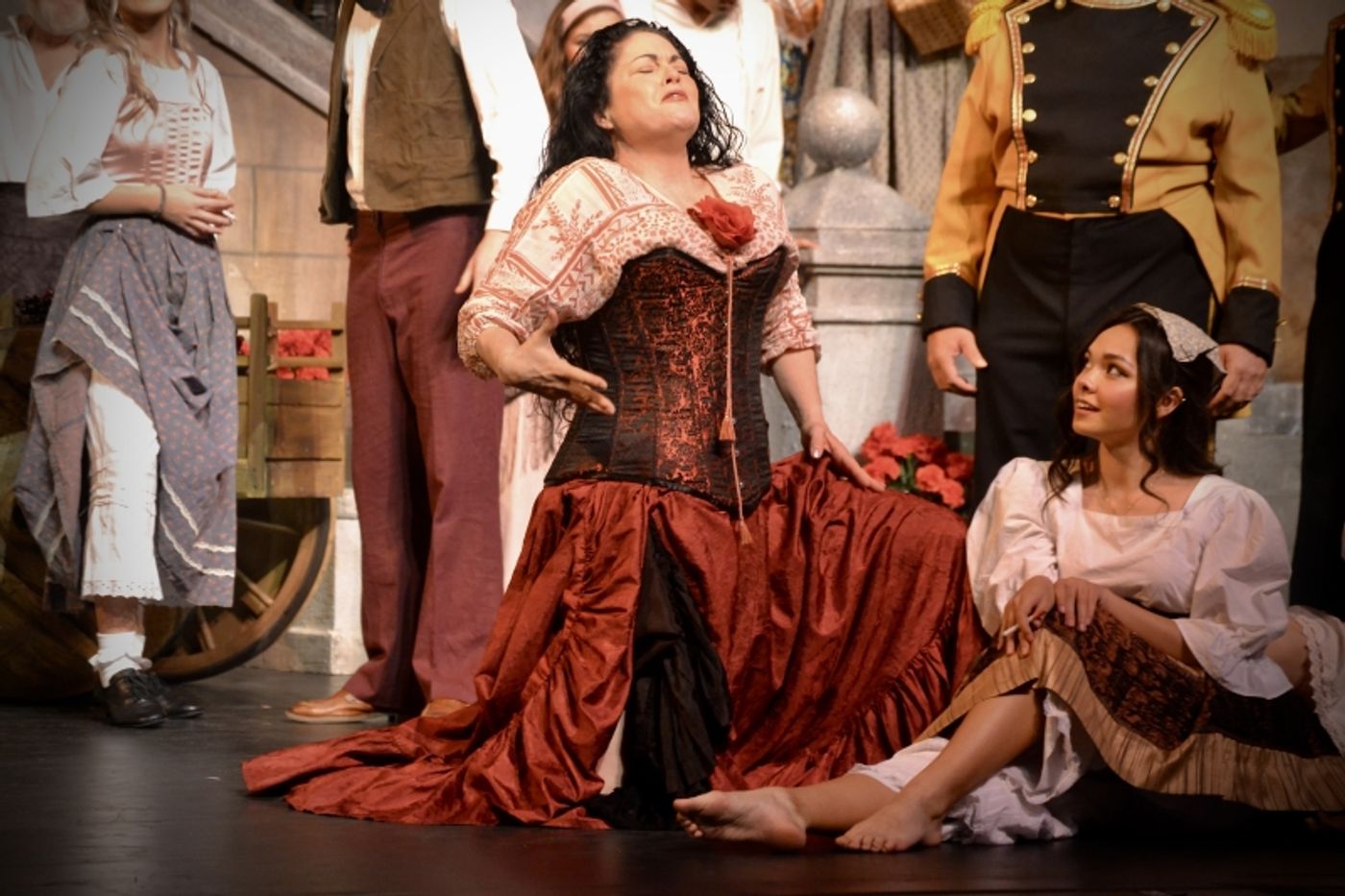
Overall, being in the opera was an incredibly exciting, valuable experience that I feel so blessed to have been a part of. Not only did it teach me all kinds of new things about music and performance, but it taught me new things about myself, and reminded me just how much I love to perform and be on stage. When I saw Carmen live in my junior year of high school, my friend in the audience with me asked me what I wanted to pursue in college during intermission. “Probably something like this, right?” he said, gesturing toward the stage. I laughed and said “I wish I was good enough.” Little did I know I would be doing exactly that-– performing onstage in Carmen– just three years later. Little did I know that I was good enough. To all the theatre majors out there, if you ever get the opportunity to be in an opera, I strongly encourage you to go for it by all means! It may seem foreign and daunting, but I promise that you are good enough and you can do it. It will challenge you in ways you never foresaw, but you will grow so much as a performer and a well-rounded patron of the arts. As they say in the opera world, “Toi, toi, toi” (good luck)!
Production photos by Joshua Mazur
Videos


